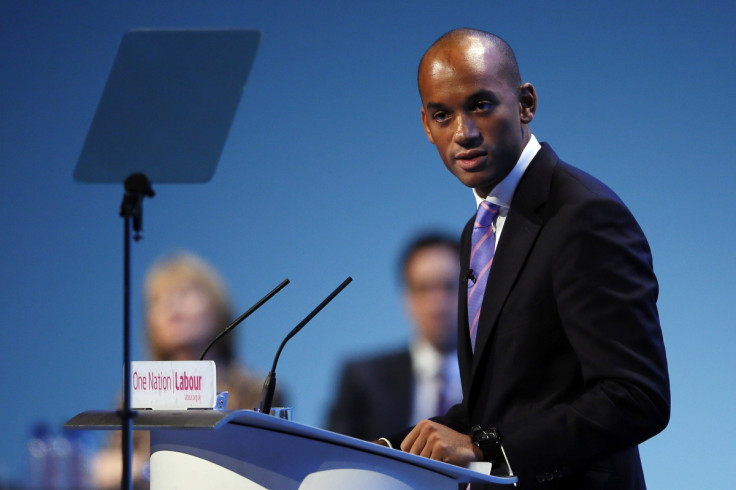Back to Blairism? Labour's Chuka Umunna Echoes Peter Mandelson's 'Filthy Rich' Remark

Labour's hotly-tipped future leader, Chuka Umunna, has appeared to distance himself from Ed Miliband by echoing one of the iconic New Labour quotes, saying he has "no problem with people making a lot of money".
It was New Labour architect Peter Mandelson who seemed to sum up what the Blair government was all about when he declared in 1998 that: "We are intensely relaxed about people getting filthy rich".
Umunna has come very close saying: " I don't have a problem with people making a lot of money, so long as they pay their taxes and it's good for our economy. (In fact, Mandelson also made the point about paying taxes)."
I'm very clear, we want to help people make their first million. If you set up a start-up and you increase you turnover to over a million, you will be employing people and delivering tax receipts to the Exchequer and helping Britain pay its way in the world. We should be saying that
But Miliband, in his drive to move away from the New Labour years, has often appeared to have a very big problem with the filthy rich, and the way they got their millions.
He has stated one of the Blair government's failures was the fact it did not do enough to tackle the gap between rich and poor, which actually widened during that period.
But even if Miliband is actually entirely relaxed about wealth creation, as he almost certainly is, he very definitely does not want to associate One Nation Labour with those sentiments at a time of continuing austerity and when he is focusing on the "cost of living crisis".
The crash changed the terms of the debate and sensitivities about relative levels of wealth, to the extent that Mandelson's quote, particularly the words "filthy rich", would grate if uttered today from a senior politician of any party.
But Umunna told parliament's in-house journal The House magazine: "I'm very clear, we want to help people make their first million. If you set up a start-up and you increase your turnover to over a million, you will be employing people and delivering tax receipts to the Exchequer and helping Britain pay its way in the world. We should be saying that."
He also insisted he was not bothered by the fact the government's new treasury minister and former banker, Sajid Javid, made millions during his career, saying: "I don't have a problem with the fact that Sajid earned millions of pounds working in the City before he was elected.
"I have more of a problem with what he stands for and what he believes in and that's what the focus should be."
There will undoubtedly be those in Labour who will feel his remarks are just too close to Mandelson's for comfort. And some have seen the interview, in which he also praised the successes of the Blair government, as a calculated piece of positioning with one eye on a future leadership bid.
But much of the sensitivity in Labour about the Mandelson remark was the impression it gave of actually revelling in wealth and the fact many saw Blair and Mandelson himself as amongst those seeking to become "filthy rich".
It was largely about the symbolism of whose side the party was on and, at that time, it appeared to many that it was on the side of the "filthy rich". Miliband very clearly wants to portray himself as on the side of ordinary, struggling families.
Yet he is clearly sensitive to the charge that, through the targets he has chosen such as energy companies and banks, he is open to the charge of seeking to hamper wealth creation and enterprise and, as a result, economic recovery.
And it has traditionally been the job of business spokesmen to direct their attention to the City and businesses who may not be feeling much love from Labour at the moment.
So, if Umunna's remarks help to reassure the wealth creators they can go on doing what they do, that may well help Miliband.
© Copyright IBTimes 2025. All rights reserved.





















